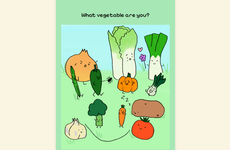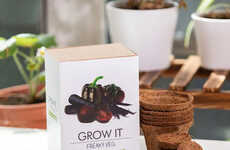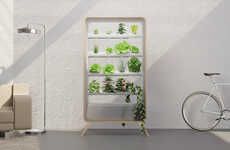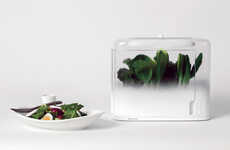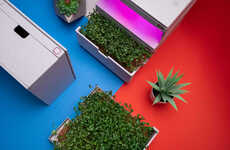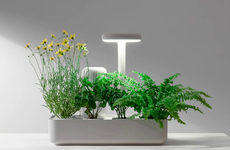
The Diary of a Space Zucchini by Don Pettit Documents Vegetable Life
Sarah Moore — April 10, 2012 — Tech
References: blogs.nasa.gov & treehugger
The Diary of a Space Zucchini documents the what it is like to be a vegetable living on board the International Space Station day-to-day.
Scientists have been growing vegetables on board the space craft in zip lock bags for months without soil to test the plants' ability to grow in outer space using only oxygen and water. While these experiments are nothing new, documenting the research by giving the produce a voice and its own blog certainly is a different approach to experimenting with aeroponics.
Astronaut Don Pettit is the acting ghostwriter for the zucchini named 'Rose,' and has since expanded his diary entries to include sunflowers and broccoli.
While the blog is mostly for fun, it also acts as a fly on the wall account of outer space life for those who will never have the opportunity to leave Earth and anyone who wants an easy to understand account of NASA's research ventures.
Scientists have been growing vegetables on board the space craft in zip lock bags for months without soil to test the plants' ability to grow in outer space using only oxygen and water. While these experiments are nothing new, documenting the research by giving the produce a voice and its own blog certainly is a different approach to experimenting with aeroponics.
Astronaut Don Pettit is the acting ghostwriter for the zucchini named 'Rose,' and has since expanded his diary entries to include sunflowers and broccoli.
While the blog is mostly for fun, it also acts as a fly on the wall account of outer space life for those who will never have the opportunity to leave Earth and anyone who wants an easy to understand account of NASA's research ventures.
Trend Themes
1. Space Agriculture - There is an opportunity to investigate and develop more efficient methods of growing crops in space for long-term spaceflight and off-planet colonization missions.
2. Personification Marketing - Brands can create unique marketing campaigns by humanizing products and giving them a voice as seen in The Diary of a Space Zucchini blog.
3. Science Communication Through Storytelling - There is an opportunity to make scientific research more relatable to the public through storytelling, as done in the blog documenting the life of produce on board the International Space Station.
Industry Implications
1. Aerospace - Aerospace companies can investigate the feasibility and potential profitability of developing space agriculture capabilities and technologies.
2. Marketing and Advertising - Agencies can create unique marketing campaigns by personifying products and using storytelling to engage audiences.
3. Science Education and Outreach - Science museums and education programs can use storytelling to engage audiences and make science more relatable and accessible to the public.
0.4
Score
Popularity
Activity
Freshness

